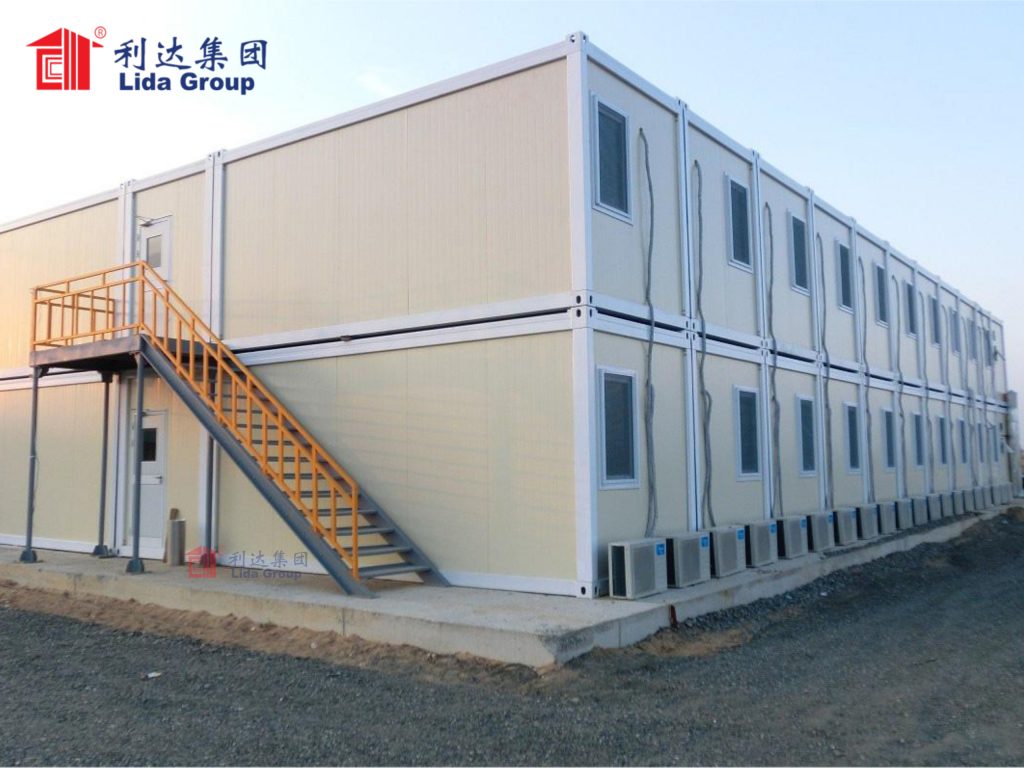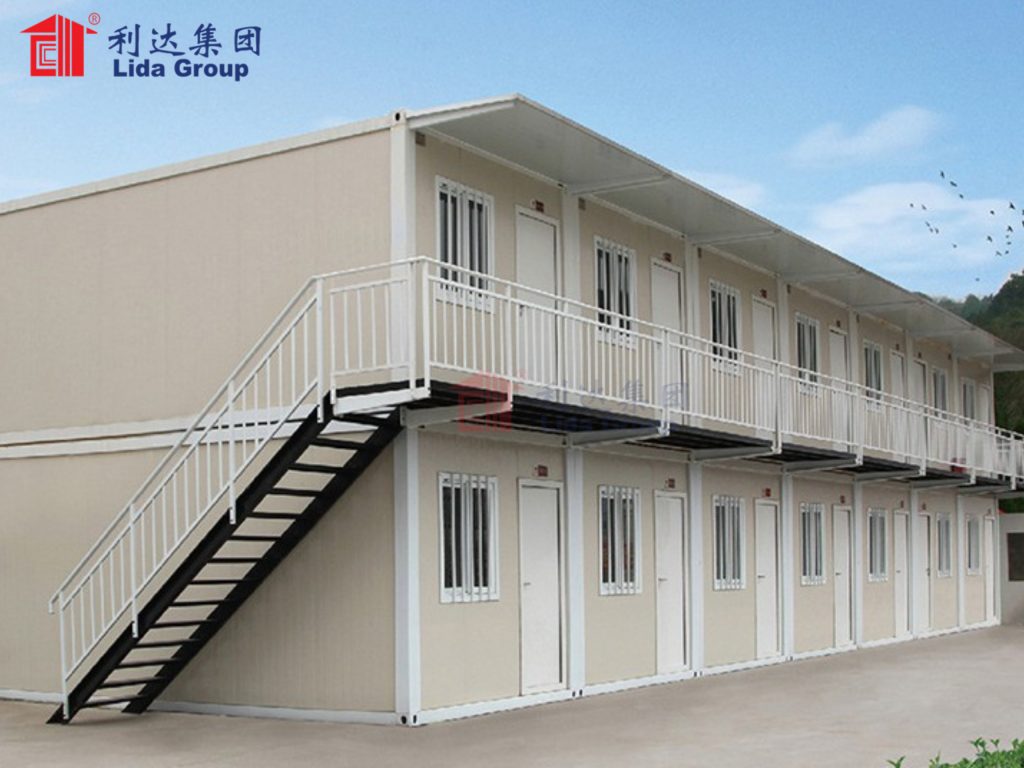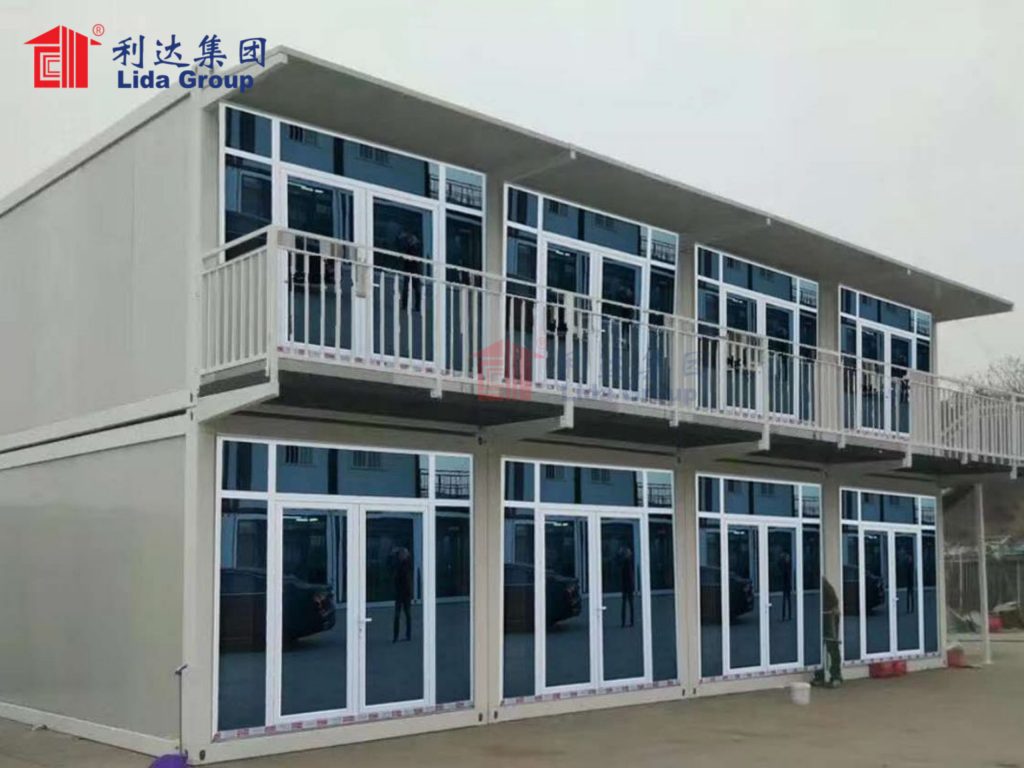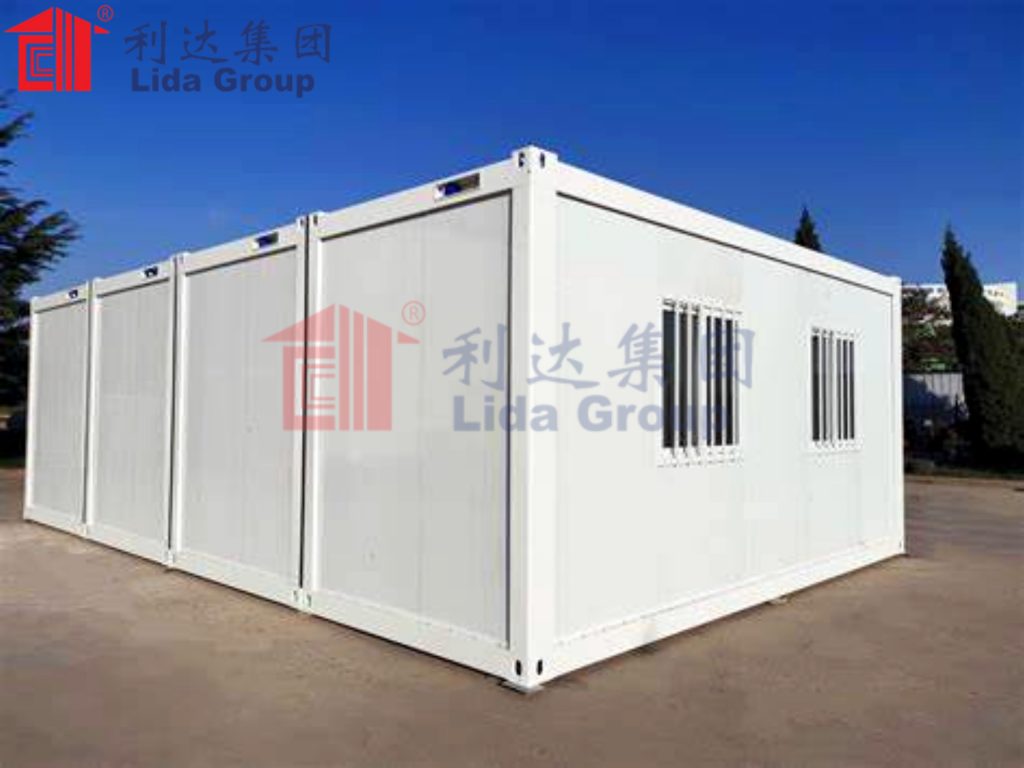Social enterprise Lida Group is developing a prototype dormitory complex utilizing modular shipping container construction that integrates educational and medical facilities directly into workforce housing serving remote oilfield operations internationally.
The ‘Container Village’ concept aims to pilot innovative solutions tackling entrenched issues around access to healthcare, training and overall living standards for laborers concentrated in temporary settlements close to mobile drilling and extraction projects.
It responds to consistent reports identifying substandard, overcrowded accommodation as negatively impacting worker productivity, retention and general wellbeing in volatile industry environments operating outside of regulated infrastructure.

In unveiling plans for an initial 20-unit pod scheduled for deployment in Southeast Asia later this year, Lida Group CEO Ziwen Mu said: “Rather than continue replicating the same inadequate models, we want to pioneer integrated approaches empowering individuals and stimulating more dignified, community-driven outcomes.”
Spurring the initiative are concerns that many nations hosting significant extractive sector employment lack sufficient policy frameworks governing workers’ rights and living conditions. With resources commanded by large multinational corporations, accountability is required to uphold basic standards.
Portable tank, pipeline and equipment assembly projects essential to oil and gas exploration have created a boom for contracted mobile labor but too often in environments lacking oversight or investment in social services proportionate to sizable transient populations.

Lida’s modular construction using refurbished shipping containers aims to address long-running deficiencies within a scalable, economically viable framework deployable anywhere rapid aggregation of human resources is demanded for finite temporary projects.
Individual 20-foot and 40-foot living units are conservatively fitted-out with bunk beds, storage, and a private shower/wc cubicle. But the self-contained ‘Container Village’ design crucially integrates shared resources favoring community and wellness.
Three centrally-positioned multi-level classrooms accommodate concurrent instruction facilitating skills training, continuing education and language courses. Flexible timetables allow shifts to be accommodated.

A pair of 120m2 medical centers house examination/treatment rooms, basic laboratory facilities and an in-patient area for minor ailments, injuries or recuperation following procedures – removing the need for non-urgent transfer to distant hospitals.
Beyond fundamental curative care, the on-site clinics enable preventative health programs. Counseling services address issues routinely arising among isolated expatriate workforces like stress, substance abuse and relationship difficulties.
Renewable energy and rainwater harvesting maintain self-sufficiency as facilities operate independent of unreliable local utility provision. Pre-fabricated components can install rapidly to support client startup schedules. Maintenance is designed for minimal specialized expertise.

Community spaces catering to recreation and spiritual/cultural expression promote psychosocial wellbeing, as does the establishment of family residences within overall capacity. Private kitchen gardens and a laundry provide supplementary amenities.
Mu emphasizes the approach aims less to “reinvent the wheel” than reshape it holistically. “Our focus is maximizing value from standardized building blocks while evolving designs in response to user needs identified through close engagement and research. Workers should see tangible improvements where they live and work each day in a mutually-supportive ecosystem.”
Lida will monitor how integration affects productivity, morale and overall social impacts through the Container Village pilot program supported by specialist partners. Data gathered will guide customization and refine sustainability as modular dormitories proliferate to fill systemic gaps if proving successful.

While still in planning, interest is reportedly strong from resource corporations aiming to boost retention of qualified laborers in remote ‘fly-in, fly-out’ roles. The concept aligns with evolving expectations around corporate social responsibility as extractive operations globalize into less developed regions.
Unregulated dispossession of indigenous peoples from mineral-rich ancestral lands is an ongoing controversy the industry must address. Developing viable ethics-driven models improving standards of living could aid reconciliation by demonstrating long-term community benefit.
Humanitarian organizations have additionally welcomed news of the prototype for its self-sufficient, portable aspects filling dire gaps accompanying large-scale transient workforces in global health and post-conflict reconstruction spheres.

Modular construction has found broad application raising living standards underserved regions. But Lida believes better social outcomes are unlocked through holistic community-centric reimagination. If successful, the Container Village model may inspire innovative solutions beyond oilfields to shape dignified settlement wherever economies concentrate human activity.
Critics argue some responsibility also falls to governments licensing operations within their jurisdiction to protect populations. But as cross-border projects proliferate beyond national oversight, corporations must proactively champion progressive reform where regulation lags – both for reputational and staff retention reasons.
Lida hopes its R&D heralds an industry-wide culture shift with business and humanitarian priorities dovetailing to upgrade precarious living conditions often backgrounding gargantuan efforts that power economies. Initial signs suggest the model aligns stakeholder visions.
“Our pursuit has always been fostering resilient, empowered communities through affordable and adaptable shelter,” Mu concludes. “To see how integrated village planning could uplift quality of life for mobile workforces on a sizable scale is tremendously inspiring – we’re eager to test practical impact and refine the vision cooperatively.”
If proving a viable template, Lida’s prototype dormitory complex could potentially reshape the transient labor accommodation paradigm influencing millions worldwide. Time will tell if the holistic “Container Village” innovations establish new norms upholding human dignity even in industry’s most isolated frontiers.

Related news
-
Government awards Lida Group contract to deliver portable prefabricated container shelter assembly training to support international efforts upgrading substandard living sites near seasonal farming worker settlements.
2024-05-31 17:52:07
-
Coastal regulators approve Lida Group's container housing plan to house disaster relief crews participating in multi-year infrastructure protection program after series of extreme weather events displaced thousands of resident workers from damaged labor camps.
2024-06-01 16:16:33
-
Urban planning nonprofit partners with Lida Group to pilot compact steel-framed modular building assemblies as infill housing solutions for densely populated emerging market megalopolises.
2024-05-30 15:22:29
contact us
- Tel: +86-532-88966982
- Whatsapp: +86-13793209022
- E-mail: sales@lidajituan.com


